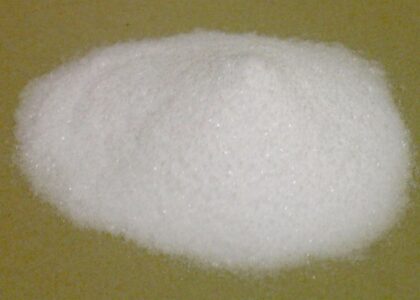
The global market for kinase inhibitors in cancer treatment is expected to witness significant growth, reaching a valuation of US$ 122,133.64 million by the year 2032. Currently valued at US$ 45,000 million as of 2022, the market is projected to expand at a Compound Annual Growth Rate (CAGR) of 10.5% during the forecast period.
This surge in market value is primarily attributed to the substantial investments by pharmaceutical companies in Research and Development (R&D) to pioneer enhanced kinase inhibitors. The continuous innovation and development in this area are driving the market growth forward.
Get Access to Sample Now: https://www.futuremarketinsights.com/reports/sample/rep-gb-1403
Furthermore, remarkable technological advancements in the healthcare sector, particularly in cancer treatment, are playing a pivotal role. Companies are leveraging cutting-edge technology to craft more sophisticated tyrosine kinase inhibitors, thus augmenting the demand for kinase inhibitors in cancer treatment in the forthcoming years.
The global cancer burden has been on the rise, with statistics from the World Cancer Research Fund (WCRF) indicating 18.1 million cancer cases in 2020 alone. This exponential increase in cancer incidence is expected to fuel the demand for kinase inhibitors worldwide, as these drugs hold promise in combating the disease effectively.
Oncology market leaders are placing strategic emphasis on the ease of oral administration and the capability to target multiple cellular survival pathways through kinase inhibitors. Consequently, oncologists are increasingly recognizing the benefits of tyrosine kinase inhibitors over traditional therapies, thereby boosting the market share of kinase inhibitors in cancer treatment.
Kinase inhibitors act on specific enzymes that impede the process of cell division and growth in cancerous cells, offering targeted therapy with a wider therapeutic index and minimal adverse effects. This stands in contrast to conventional chemotherapy, which often yields unpredictable and partial results.
In the last decade, significant strides have been made in cancer treatment, with kinase inhibitor therapy emerging as a groundbreaking approach. Unlike conventional chemotherapy, kinase inhibitors target specific molecular pathways crucial for tumor development, offering the potential to overcome many challenges associated with traditional treatments.
The advent of kinase inhibitors heralds a new era in anticancer therapy, promising more effective and precise treatment modalities with reduced toxicity to healthy cells.
The market for kinase inhibitors in cancer treatment is influenced by several drivers and restraints:
Drivers:
- Increased Emphasis on R&D: Pharmaceutical companies are investing heavily in research and development to discover and develop novel kinase inhibitors for treating various types of cancers. This enhanced focus on R&D is driving the growth of the market as new and more effective treatments become available.
- Technological Progression in Healthcare: Advances in technology, such as genomics, molecular biology, and computational methods, are enabling the identification and development of kinase inhibitors with greater precision and efficacy. These technological advancements are expanding the possibilities for cancer treatment and contributing to market growth.
- Rise in Cancer Prevalence: There has been a significant increase in the prevalence of cancer globally, leading to a higher demand for effective treatments. Kinase inhibitors offer targeted therapy options for various types of cancers, which is driving their adoption and contributing to market growth.
- Increase in Chronic Diseases: The incidence of chronic diseases, including cancer, is on the rise worldwide. As kinase inhibitors show promise in treating various types of cancers, there is a growing demand for these therapies to address the increasing burden of chronic diseases.
Methodology Details Just a Click Away: https://www.futuremarketinsights.com/request-report-methodology/rep-gb-1403
Restraints:
- High Cost of Clinical Trials: The development of kinase inhibitors involves extensive clinical trials to demonstrate safety and efficacy. These clinical trials incur substantial costs, including expenses related to patient recruitment, monitoring, and regulatory compliance. The high cost of conducting clinical trials acts as a significant barrier, particularly for smaller pharmaceutical companies or research institutions, limiting their ability to bring new kinase inhibitors to market.
- Complex Approval Processes: Regulatory approval processes for kinase inhibitors can be complex and time-consuming. Meeting the regulatory requirements of different jurisdictions often requires extensive data collection and analysis, further adding to the time and cost involved in bringing these therapies to market. Complex approval processes can delay the availability of kinase inhibitors for cancer treatment, hindering market growth.
Addressing these challenges will be crucial for unlocking the full potential of kinase inhibitors in cancer treatment and driving further growth in the global market. Collaboration between pharmaceutical companies, regulatory agencies, and research institutions may help streamline the development and approval processes, making kinase inhibitors more accessible to patients in need. Additionally, efforts to reduce the cost of clinical trials through innovative approaches and technologies could facilitate the development of more affordable kinase inhibitors for cancer treatment.
Kinase Inhibitors for Cancer Treatment Market: Key Players
Some of the key participating global players in kinase inhibitors for cancer treatment global market are Pfizer Inc., Boehringer Ingelheim GmbH, Novartis AG, Incyte Corporation, MedImmune, AstraZeneca, Eisai Co., Ltd., Takeda Pharmaceutical Company Limited and others.
Direct Purchase of this Report: https://www.futuremarketinsights.com/checkout/1403
Kinase Inhibitors for Cancer Treatment Market: Segmentation
Kinase inhibitors for cancer treatment globalmarketis segmented into following types:
By Product Type:
- Angiogenesis inhibitors
- m-TOR inhibitors
- BRAF and MEK inhibitors
- Bcr-Abl tyrosine-kinase inhibitors (TKI)
- EGFR inhibitors
- Others (PI3K Inhibitors, aurora-kinase inhibitors etc)
End User:
- Hospitals
- Research Organizations
By Region:
- North America
- Latin America
- Western Europe
- Eastern Europe
- APEJ
- Japan
- MEA
About Future Market Insights (FMI)
Future Market Insights, Inc. (ESOMAR certified, recipient of the Stevie Award, and a member of the Greater New York Chamber of Commerce) offers profound insights into the driving factors that are boosting demand in the market. FMI stands as the leading global provider of market intelligence, advisory services, consulting, and events for the Packaging, Food and Beverage, Consumer Technology, Healthcare, Industrial, and Chemicals markets. With a vast team of over 400 analysts worldwide, FMI provides global, regional, and local expertise on diverse domains and industry trends across more than 110 countries.
Contact Us:
Future Market Insights Inc.
Christiana Corporate, 200 Continental Drive,
Suite 401, Newark, Delaware – 19713, USA
T: +1-845-579-5705
For Sales Enquiries: sales@futuremarketinsights.com
Website: https://www.futuremarketinsights.com
LinkedIn| Twitter| Blogs | YouTube



